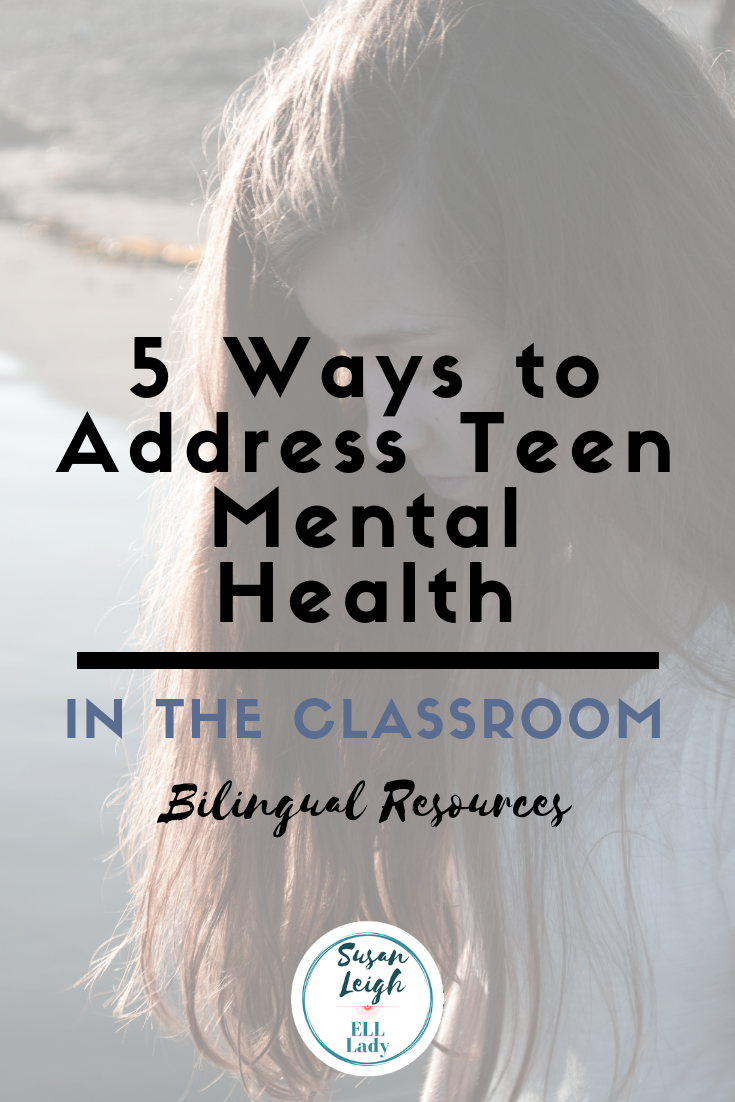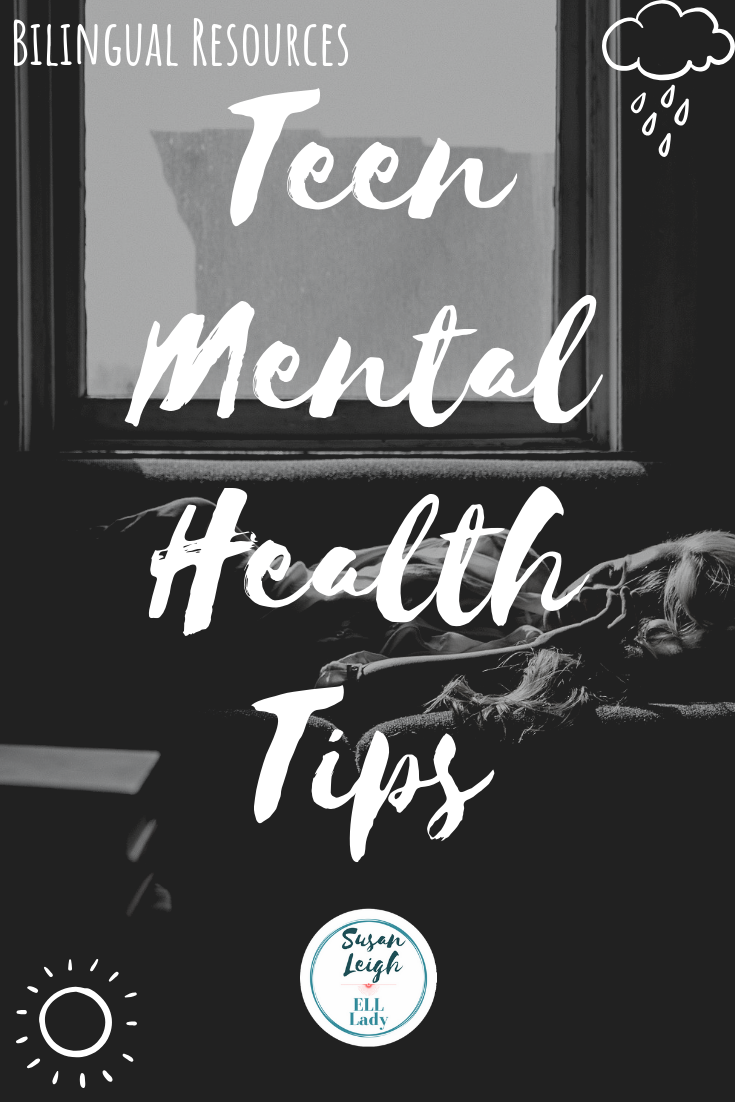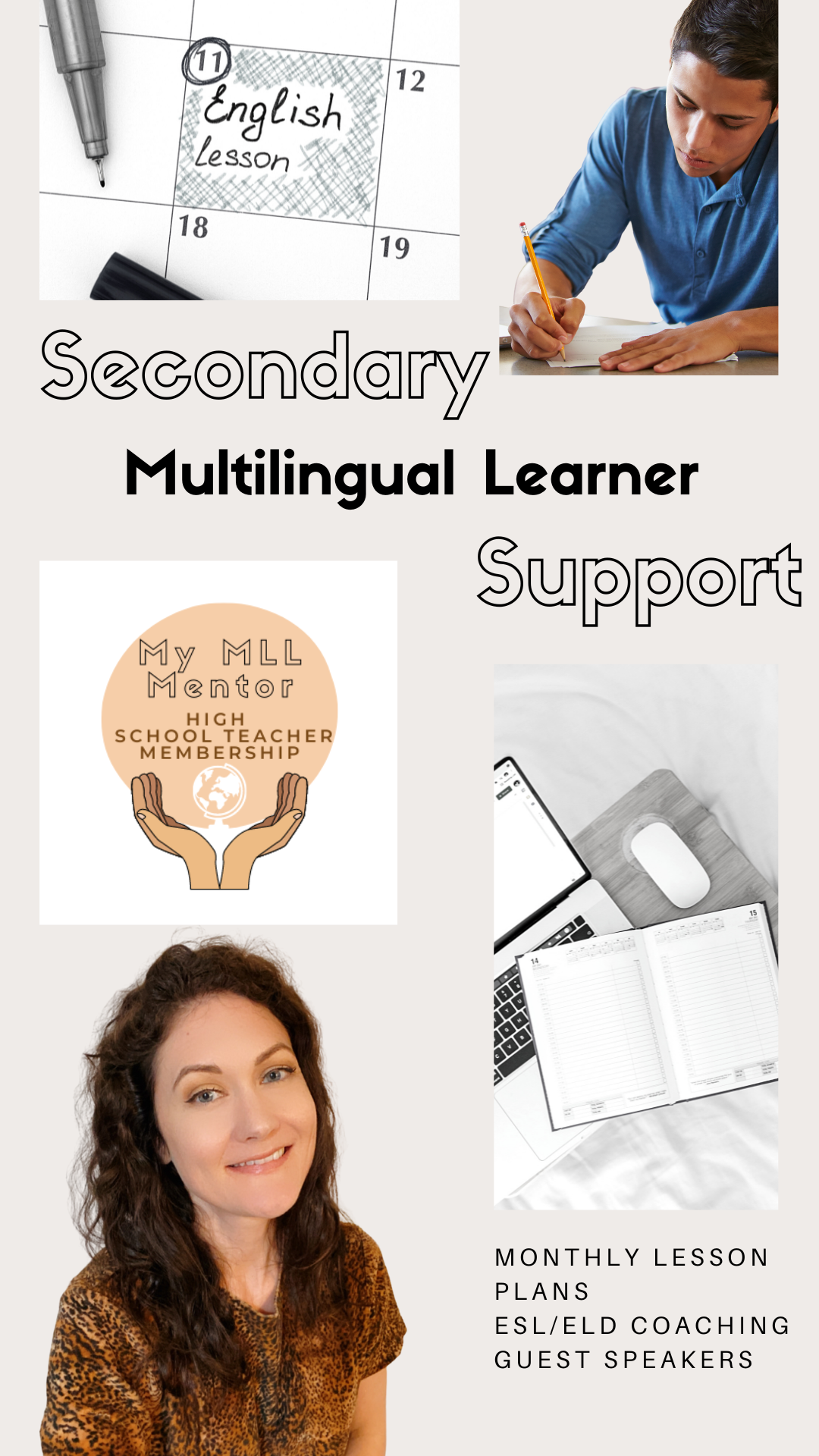|
Disclosure: some of the links below are affiliate links, meaning, at no additional cost to you, I will earn a commission if you click through and make a purchase.
"Mrs. Patterson, my head hurts and I couldn't sleep last night." Araceli (name changed for privacy) told me this today in Spanish as we were starting our bell work. I had a feeling that she was speaking in Spanish about this as a way to probe and see first if I understood, and then gauge my response. For me, sleep has been a big issue since my daughter was born, so I take it very seriously when someone says they can't sleep. This can be an indicator of something else going on or it can lead to that as we continue being sleep deprived. "Well, how long have you not been able to sleep? Is this a new thing? When did it start?" I learn that this is a recent thing, and I also remember that she told me a couple of weeks ago that her parents were going back to Mexico for about a month and she was upset about it. I've also seen her upset three times in my room before anyone else came in (okay, there's only one other student in that class and they are close). Since the other student is a friend of hers, we end up spending most of class discussing her family life. Araceli tells us more. "I just lay down to sleep, and I wake up maybe ten minutes later wide awake. Or at 3 am and I cannot go back to bed. I'm thinking of everything and I can't stop. I'm worried about my parents, and my mom has arrhythmia, and my dad almost died six months ago." "Araceli, you are stressed and we need to talk about how to manage it," I say. "Yes, I know. This is what my boyfriend says, but I cannot stop." Instead of talking about our complex text and vocabulary and grammar, we talk about sickness, death, insomnia, boyfriends, and meditation. I open up to them about some of my experiences like my mom having cancer in high school and later dying, and honestly almost cry. After holding it together and trying my best not to awkwardly hug Araceli, we get it together and read one section of our text and do a quick bubble map. What if I never opened myself up to them? What happens when we show that we are human, and it's normal to talk about these things because it's life? These kids feel more loved (I hope) and have a safe place to talk about things they may never talk about otherwise. I spent the whole drive home thinking about resources I can bring to her the next day. Meditations to show her, yoga to introduce to her. Insurance information to give to her for those who do not have it. How do I make her feel like she can just talk to me when she needs it? What exactly am I going to bring her? Everything that I may have needed when I was younger and things I still need going through life's stresses: 1. Mindfulness meditation for teens 2. Yoga for teens 3. Healthcare service information 4. Sleep hygiene information 5. Negatives of social media
1. Mindfulness meditation for teens
If only I even knew what it was when I was a teen. It's still a practice that I struggle with doing consistently, but I feel that it's a great practice to train my brain to slow down. I've read someone describe their anxiety thoughts as a spiral that keeps going and the spiral tightens and tightens the longer you let it take control. Guided meditations have been a great help to redirect those thoughts. I only wish I would've started my practice sooner. Here and here are some great resources for guided meditations for teens. Since I teach English as a Second Language, Spanish resources are a must. Here are some guided meditations and handouts about various health and meditation information. There are also some good guided meditations on Youtube in Spanish. 2. Yoga for teens My first experience with yoga was when I took a class in college, and I loved it! I loved how it integrated physical exercise (which I do not usually like, by the way) and mindfulness at the same time. I loved how it was a holistic approach to changing your life, not just an exercise you do a couple of times a week and then forget about. Doyouyoga.com has some great free resources for the yoga newbie and the seasoned yogi alike. For premium members (about $15 a month), they also offer The Best Sleep, a yoga and meditation series to help calm an anxious mind and get ready for rest. Here are some great Youtube videos for Spanish-speakers. 3. Healthcare service The reality is that a lot of my students and their parents do not have healthcare. They do not know that there are resources available for them, even without insurance. The social worker at my school recommended a not for profit organization that offers mental health services for those without. This website locates the closest healthcare centers to you, and from there you can research which ones require insurance. 4. Sleep hygiene Admittedly, this was something I had no idea existed until I had sleep problems of my own. But, it totally makes sense. In addition to these great tips in English and Spanish, screen time affects our sleep more than we know. Unplugging from your phone and computer an hour before bedtime is a must to take a break from the blue screen that can deplete your natural melatonin levels. If your students can't break away, tell them to set their screen on their phones to nighttime mode. Hand out this tip sheet for more ways to practice sleep hygiene. This past summer, I added meditation to my getting ready for bed routine. I normally spend the last hour either reading or watching something light on TV. Yes, it's tempting to watch Castle Rock, but it won't help your pre-sleep anxiety that you may or may not notice you have. I wash my face, brush my teeth, put some loose fitting jammies on, then do some light yoga or a meditation. This is a great Spanish meditation for insomnia. Then I float off to sleep (that's the idea). If your students need some extra help getting to sleep, tell them to ask their parents about trying some melatonin or magnesium before bed. I take magnesium every night, and it has other uses besides boosting sleep. It definitely keeps my restless leg in check! I put magnesium lotion on along with my supplement. 5. Negatives of social media It's no secret that social media can affect our mood. It can stir up feelings of jealousy, anger, depression, and anxiety. What people post doesn't normally include the day-to-day things that are real in our lives. They usually post what makes them seem happy. That picture of them with their family smiling, the other one of them having a blast with friends, and the selfie of them with perfect makeup. It's not real life. So, tell your students to stay off and stay present in their own lives, especially for the last hour before they sleep. Teach them to recognize that everyone has their daily problems, even if they aren't sharing them on Snapchat and Instagram. This Tedx Talk shows what social media does to us, and what withdrawals it can give from the perspective of a millenial. Ultimately, teaching doesn't stop at the curriculum. When you open yourself up to teaching emotions and how to handle them, it can change your student's world and help you learn something new too.
1 Comment
Leave a Reply. |
AuthorI support middle and high school teachers through monthly lesson plans, coaching, and guest speaker offerings in our Secondary ESL Teacher Membership. Archives
April 2023
Categories
All
|



 RSS Feed
RSS Feed
